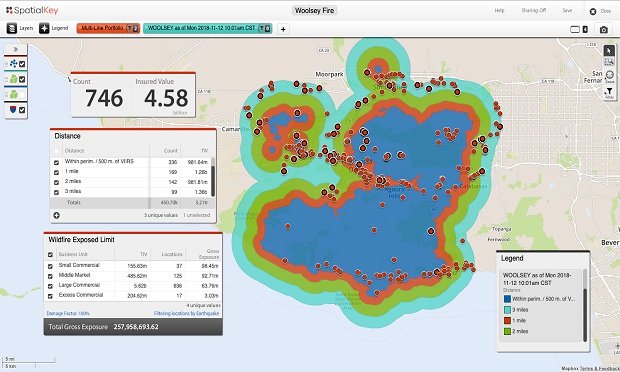The core features of social-networking sites such asFacebook—allowing people to use one central location to easilyshare ideas, updates, questions and answers with a large group oftrusted acquaintances—would seem to be ideally suited to thebusiness world as well.
| But corporations trying toutilize traditional social-media tools to better managemulti-office projects and brainstorm new products are encounteringa host of obstacles—not least of which is the absence of toolsspecifically designed to foster and facilitate collaboration amongwork colleagues.
But corporations trying toutilize traditional social-media tools to better managemulti-office projects and brainstorm new products are encounteringa host of obstacles—not least of which is the absence of toolsspecifically designed to foster and facilitate collaboration amongwork colleagues.
Facebook, after all, was designed for friends, not for theFortune 500.
|But technology companies now are starting to develop"social business" platforms specifically designed for the officeand loaded with applications aimed at ultimately aiding the bottomline.
|A prime example of one insurer embracing this social-businesstechnology platform is Warren, N.J.-based Chubb.
|"We are in the process of rolling out an enterprise-wide socialplatform that is focused exclusively on business and solvingbusiness problems—by connecting people within the firm withwhomever they need to work with, on either a standing or ad-hocbasis," says Jon Bidwell, senior vice president and chiefinnovation officer for Chubb.
|EARLY ADOPTER
|One reason Bidwell is confident that this new initiative willmeaningfully contribute to Chubb's success is that the insureralready has had a positive experience using socialmedia.
|Three years ago, Chubb began an innovative program that allowedemployees throughout the company and a select group of producers toparticipate in events with the goal in mind to generate profitablegrowth and develop new efficiencies.
| To facilitate the discusions,Chubb used an innovative collaborative software program for theevents.
To facilitate the discusions,Chubb used an innovative collaborative software program for theevents.
The group would be issued a specific challenge to solve and thengiven a finite time to submit ideas, usually 30 days. At the end ofthat time, the ideas were evaluated and the best would move on tothe next phase of development and implementation.
|By allowing for the input and insights of an array of expertsacross and outside the company, Chubb "was able to cut developmenttime on new products to a year, which is light speed in thisindustry," says Bidwell.
|But Chubb senior management thought there had to be an even moreefficient way to share knowledge across a large organization.
|Using an example from the perspective of aninformation-technology department, Bidwell points out that "e-mailis not an effective way to say [to a large group], 'I have aproblem with this particular code I'm running. How do I fixit?'"
|The solution, Bidwell says, is the multipurpose social-businessplatform the firm is rolling out, which he describes as "Facebookmeets blog meets knowledge management because of the ability to tagand search [content]."
|He adds: "We have gone from aninnovative platform with a specific purpose to a more open platformfor any type of business need. So you can pull together people fromacross different disciplines, regions or product lines."
|JIVE TALKING
|For its social-business initiative, Chubb is using Jive, a PaloAlto, Calif.-based software company.
|Comparing what this solution offers versus a traditional,consumer-focused social-networking site, Bidwell says Jive is oneof a "whole class of systems out there that offer differentfunctionality. In this environment you are looking at accomplishingmultiple purposes. It is not just updating your friends and postingphotos."
|At Jive's website (jivesoftware.com), visitors can find links toa couple of YouTube videos that provide examples of asocial-business platform in action. [Digital subscribers click hereto watch the video.]
|Bidwell points out that social-business software does not comeout of the box ready to use but needs to be customized to theindividual user. It is a "misplaced belief that you turn thesethings on, and they are somehow self-organizing and everyone findsa reason to use it or they understand the value for getting ontoit."
|He continues: "You have to have a method of rolling them outthat is organized and purpose driven. There needs to be a businessproblem—something you are trying to solve. There are companies thathave bought these programs and turned them on and discovered thatthey have no use for it—or have put the business equivalent ofAngry Birds on 10,000 desktops where people are wiling away a lotof time discussing things that have no business purpose."
|An issue complicating usage of social-business tools that isparticular to the insurance industry is users have to be mindfulthat what goes on in these discussions does not violate insuranceregulations or the law.
|"In a regulated, financial-services business, there is a lot ofconsideration around things being systems of record," notesBidwell. "What types of business issues are discussed on theseplatforms? There is frankly a pretty big legal and regulatory piecesitting behind [our build out of the tool]."
|SOCIAL-BUSINESS USE CASES
|Taking Jive's software and customizing it to deal with theseissues, Chubb plans to have a full roll-out of its social-businessplatform within the next three months.
|The platform will allow employees to have "an ongoingconversation on a particular topic," says Bidwell. "It might betrying to solve a problem or to identify a best practice in anotherorganization" that can be deployed at Chubb.
|Bidwell also sees another useful function for the platform: Itwill allow new employees and others with a business issue todiscover how other people solved similar problems. Topics will besearchable and the conversations will form a vast database withdocument-management capability.
|The social-business platform becomes "an extensive researchlibrary" to discover how an issue was dealt with, he says. Anotherbig benefit for users is that it will heighten the visibility andhighlight the expertise of individuals within the company.
|"People like to share and be seen," says Bidwell. "Social toolsgive visibility. [Employees] can be seen and recognized, and thatis important to them. And recognizing [their valuablecontributions] will help allow ideas to percolate."
|Correction: Revisions in the eighth and ninth paragraphsclarify that Chubb's initial social-media platform three years agowas a collaborative software program for individual events, not ahodgepodge of pre-existing web-based tools.
|
Want to continue reading?
Become a Free PropertyCasualty360 Digital Reader
Your access to unlimited PropertyCasualty360 content isn’t changing.
Once you are an ALM digital member, you’ll receive:
- All PropertyCasualty360.com news coverage, best practices, and in-depth analysis.
- Educational webcasts, resources from industry leaders, and informative newsletters.
- Other award-winning websites including BenefitsPRO.com and ThinkAdvisor.com.
Already have an account? Sign In
© 2024 ALM Global, LLC, All Rights Reserved. Request academic re-use from www.copyright.com. All other uses, submit a request to [email protected]. For more information visit Asset & Logo Licensing.








